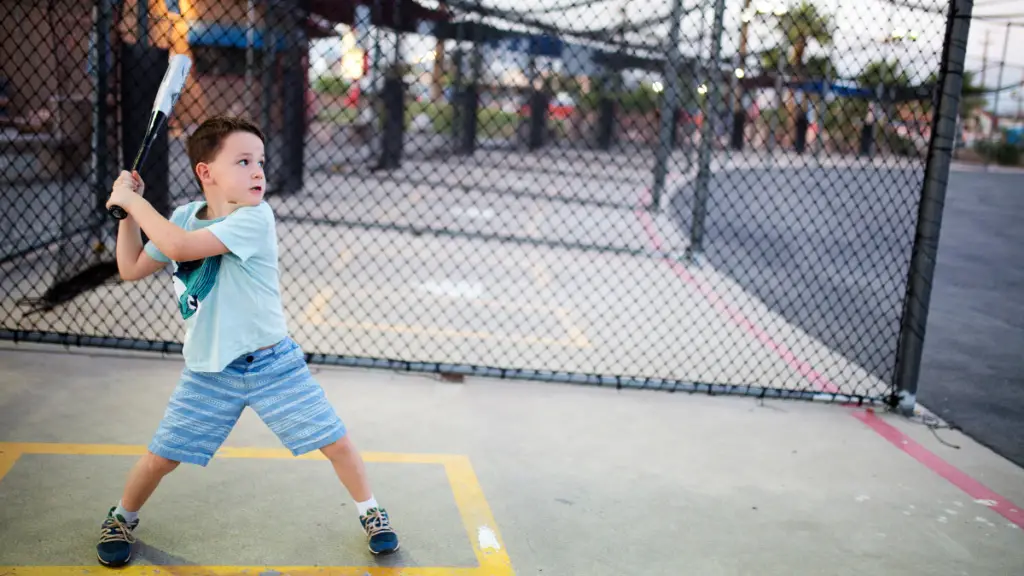Cultivating an interest in sports for our children not only helps in their physical development, but it also plays a significant role in building character, fostering teamwork, and promoting discipline. However, the initial steps towards creating an enduring interest in sports, can be a true challenge for many parents. This process requires, not just exposing the child to a variety of sports, but more importantly, discerning their genuine interests and creating a nurturing and supportive environment. We shall explore effective strategies such as how to identify a child’s sporting interests, create a positive environment, and give constructive feedback and encouragement to springboard their journey into the world of sports.
Identifying Child’s Interest in Sports
Fostering A Love for Sports in Your Child: Spotting and Nurturing Their Passion
Are you constantly donning the role of a cheerleader as your child navigates the world of sports? Or perhaps you find yourself standing on the sidelines, unsure of how to get them started or keep their interest aflame. Sports can play a pivotal role in a child’s life—building their character, teaching them team playing, shaping their leadership skills, and improving their physical health. Knowing how to identify and nurture your child’s interest in sports can make all the difference. Here are some tips to help you.
First, watch for signs of interest. Children often showcase their liking for a particular sport in their play or through constant discussions about it. They may show fascination for a certain sports star or are glued to the TV during a particular game. These signs may point towards where their interests lie.
Once you have identified a possible interest, encourage their exploration by providing the tools they need. If soccer is their sport of choice, get them a soccer ball. Have a kid that dreams of flying through the skies in a perfect three-pointer? A basketball hoop in the backyard might not be a bad idea.
Now, let’s be honest. All children would much rather do than watch. Don’t limit their sports experience to the television; motivation often comes through participation. Organize a family game during the weekend, or encourage them to play with friends after school. This gives them hands-on experience, and it’s a fantastic opportunity for you to take part in their interests.
Take it a step further and expose them to local sports games or matches. Attend high school or community college games together. Not only will this provide them with a real-time feel of the sport, it also serves as a shared bonding experience.
Patience is key when nurturing a child’s interest in sports. They might show a liking for other sports over time; this is entirely normal and should be encouraged. It can be easy to get too wrapped up in the excitement and unintentionally pressure them to excel. Remember, the goal here is to support and guide them in developing a love for the sport, not to force them to play professionally.
Encourage them to join a team. This provides structure and formal training, and builds their discipline, teamwork and leadership skills. Be sure their coaches carry the same values and are more interested in nurturing their love for the sport, rather than being too focused on competitiveness.
-

Bold Male Pride – Baseball Trucker Cap Celebrating Masculinity
£18.00 Select options This product has multiple variants. The options may be chosen on the product page -

Dad Bod Appreciation Gift Mug
£14.00 Add to cart -

Dad Bod, Bad Jokes Structured Baseball Cap
£22.00 Select options This product has multiple variants. The options may be chosen on the product page
Fostering a love for sports in your child can seem daunting, but by staying patient, encouraging exploration, and providing the right learning environment, you’re definitely on the right track. Remember, each child is unique, and their interests may likely vary. The primary goal is to ensure they enjoy and learn from the experience, while also providing them the opportunity to lead an active lifestyle. Be there to cheer them on at every stage, and watch as they grow into confident, strong, and sports loving individuals. Your love and support will play an instrumental role in their sports journey. Wear that cheerleader badge with pride!

Creating a Positive Environment
Building an Ideal Setting for Your Child’s Athletic Journey
A wholesome family environment is instrumental in shaping a child’s sports journey. It provides the essential elements that inspire and motivate children to stay active, engage in sports, and even excel in them. Once signs of interest in a sport have been recognized, and the child is encouraged to explore and participate, fostering a conducive environment at home becomes much more critical to keep that interest alive and kicking.
So, what exactly does this optimal environment look like, and how can parents create it?
Create Acceptance about Winning and Losing
In sports, winning is splendid, but losing is inevitable. Create an environment where your child understands that it’s completely okay to lose a game now and then. It’s a lesson in resilience, in bouncing back – a skill crucial for athletic and life success. Celebrate their effort and progress more than the outcomes and foster an attitude of perseverance at home. Cheer when they win, comfort and support when they lose.
Promote a Healthy Lifestyle
The physical demands of sports require children to maintain good health. As a parent, fostering healthy eating habits and incorporating physical activities into your family’s daily routine will go a long way. Make nutritious meals an intrinsic part of your household, encourage regular body exercise and adequate sleep. This will not only support their athletic activities but will also ingrain a culture of health in their lives.
Provide an Infrastructure at Home
If possible, create a space at home where your child can practice their sport. This could be as simple as a free corner in your yard for football or a small hoop in their bedroom for a basketball enthusiast. This gives them the freedom to practice anytime they want. Moreover, seeing this space every day may remind them of their interest and commitment.
Being Realistic and Positive
While it’s tempting to imagine your child lifting that trophy, it’s essential to be realistic about their abilities and progress. Positive and honest feedback is critical; they need to know both their strengths and weaknesses to improve.
Connect With Other Sports Parents
Connecting with other parents who also have children involved in sports can provide moral support and understanding. Create a community where, together, everyone can learn and share experiences of their children’s athletic journey.
Promote a Balanced Life
Make sure sports don’t entirely consume your child’s life. Encourage them to maintain a balance between sports, academic, and personal life. They should have time to relax, to enjoy other activities that they love, and grow in all aspects.
In conclusion, promoting an active lifestyle, providing support, fostering resilience, and having a balanced approach to life will create an ideal atmosphere for your child’s sport journey. Let’s remember as parents, our role in bolstering their self-esteem, skills, and passion for the sport they love.

Encouragement and Constructive Feedback
As we navigate our children’s sports journey, it’s paramount to match our acts of encouragement with equally constructive feedback. It’s a delicate balance to maintain, but one that will help your child grow both in their chosen sport and in life. Here are some ways you can make a meaningful difference in your child’s sports experience.
Let’s start with the core concept of giving feedback. Always ensure your critique is specific and non-personal. It’s crucial to remember that mistakes don’t reflect the child’s worth or talent but are simply part of the learning process. Fostering an environment where children are not afraid to fail will indeed promote their progress. So, instead of saying “You didn’t do well today,” try something like, “That last move was a tough one, wasn’t it? Let’s try practicing that more.”
Maintain a 5:1 ratio of positive comments to negative ones. Just like anyone else, children respond favorably when their accomplishments are recognized. Praise their effort, improvement, and the attitude they bring to the sport, not just their talent or end result. Positivity fosters a sense of self-improvement, motivating them to do even better next time.
What’s just as important as encouragement and praise? Active listening. The best feedback will come when you understand what your child is feeling. If they’re disappointed about a play or a game, allow them to express it. Help them understand that it’s okay to feel sad or frustrated sometimes.
Encourage your child to become their own constructive critic too. This empowers them to be proactive, take responsibility, and build self-confidence. You might ask, “What did you think about that game?” or “How do you think you could improve?” Moreover, opening a conversation like this allows them to identify challenges and even come up with solutions.
Don’t forget that the meaning of their sports journey is about more than just the sport itself. It’s an excellent opportunity for children to learn values that will carry into their adult lives. Teach them the importance of respect for coaches, teammates, opponents, and referees. Remind them about the value of hard work, perseverance, teamwork, and integrity.
Last but not least, integrate sport into your life as a family. Make it one of many aspects of a cherished, well-rounded life. Make time for relaxation, leisurely family activities, and academic pursuits – it’s about creating a balance. This way, your child will approach sport with an understanding that it’s a part of life, not their whole life.
Through all these steps, strive to be the support system they can lean on, enjoying the privilege of walking this exciting journey beside them. They will remember your valuable influence and grade-A cheering even more than the number of trophies won.

Conclusion
The love of sports is a gift that we offer to our children that goes beyond the scope of the playing field. This investment in a child’s sporting journey will not only help them become physically strong and agile; it has the power to shape their character, fostering resilience, determination, teamwork, and a healthy attitude towards challenges. Identifying a child’s sporting interest, creating a positive environment, and providing effective encouragement and constructive feedback, are pivotal steps in helping your child to reach their full potential, and develop a lifelong love for sports. Let this shared journey between you and your child serve as a unique bond that strengthens your relationship with them and encourages them to keep exploring and expanding their horizons.





